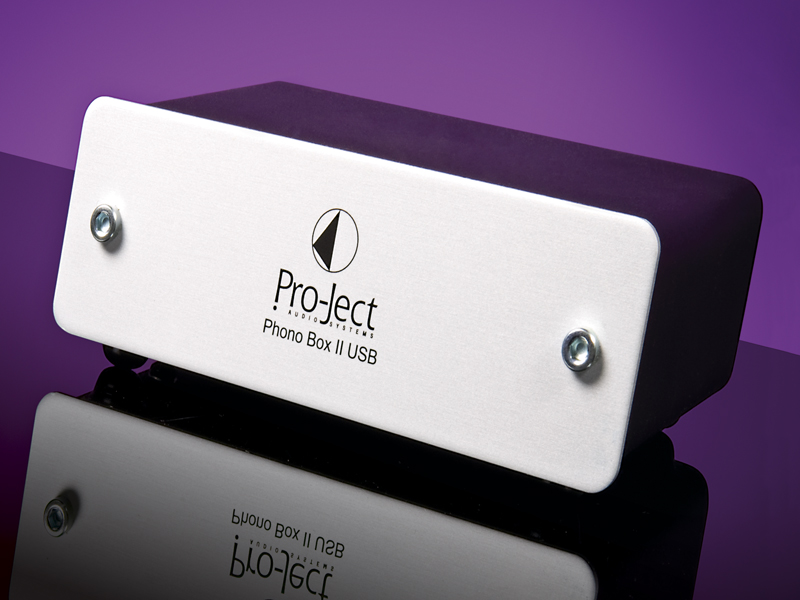TechRadar Verdict
A perfectly respectable phono stage at the price, the addition of a capable ADC with simple USB connectivity makes this a real bargain; good sounding, easy to use and smart too! Just remember to stick with moving magnet cartridges
Pros
- +
Good extension and precision at the frequency extremes
- +
Neutral midrange
- +
Plenty of life and verve
- +
Very enjoyable presentation all round on moving magnets
Cons
- -
Detail is not the best we've heard
- -
Moving coil setting is too noisy for general recommendation
- -
Connection is slightly fiddly
Why you can trust TechRadar
Pro-Ject is, of course, the great success story of the LP turntable market, having started when most others were giving up: it has gone on to achieve eminence with a large and varied product range.
The Pro-Ject Phono Box II is an LP-based unit, but this sly little phono stage comes with a twist for the computer age, in the shape of a USB socket.
Plug & Play turntable
USB is the computer connection that hooks just about everything to everything else, allowing cameras, mobile phones, audio devices, printers and more to connect as simply as one plugs sources into an amplifier.
With a device like this, the computer recognises the Phono Box for what it is and sets everything up for you. All you need to add is some bit of audio recording software and you can be digitising your LPs in a couple of minutes. There is, of course, a 'normal' audio output too, for regular listening.
If this isn't the best example of 'Plug & Play' around, what is – you plug in the Pro-ject box and play your records.
Generous features
About the only thing we found that needed a little care was hum loops. As it turned out, both our computer and the hi-fi were earthed at the mains, but a ground-less amp sorted that one out and otherwise we found operation quite painless.
The Box digitises LPs at a 48khz sample rate (thanks to a built-in 16-bit Delta-Sigma analogue-to-digital convertor); if your software expects another sample rate it may convert with sonically unpredictable results, so attend to that if you care about quality.
Within the case, two op-amps per channel look after amplification, with that good-quality ADC interfacing to the USB socket. Amazingly given the price, you even get MM and MC compatibility, though the latter is a little on the noisy side. A healthy output of 9V ensures that overload is unlikely to be a problem with any normal cartridge.
Surprising sound quality
The good news with this little gadget is that all the basics are there.
The even better news is that it manages to go a surprising way beyond the basics to give a sound that is believable, well proportioned and with good extension in both bass and treble. This is true, at any rate, with moving magnet cartridges; with moving coils, the noise intrudes just a little too much and the result is seldom very engaging.
If you want to use a MC cartridge, invest in a step-up transformer. With MM cartridges, though, the sound has a degree of life and energy that is distinctly a cut above what one expects from cheap phono stages. In all sorts of music, with both 'hot' and relatively tame LP cuts, the Phono Box USB seems to get to the heart of the matter and present a very involving version of events.
Where it does show its budget heritage is in retrieval of the finest details, and it doesn't offer the most subtle insights nor indeed the most precise imaging, but for this sort of sum it would be downright unreasonable to demand that.
Converting LPs
For purposes of both immediate listening and archiving to computer, we took a trip down memory lane with some LPs used in our turntable reviews nearly years ago. Sure, converting them to digital loses some of the magic but we were impressed just how much remained.
If you are used to the rather indifferent analogue input performance of most computer sound cards, this will be a revelation. And heard direct the music really came to life in a most enjoyable manner.
Performance is balanced and more than just competent in all areas – a fine result!
